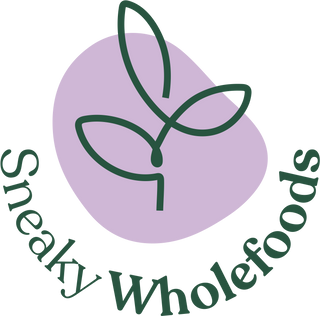Living with endometriosis often means juggling pain, fatigue, bloating, and inflammation - all while just trying to function like everyone else. And while food isn’t a magic fix, it’s often an under-utilised tool that can make a genuine difference in how you feel day to day.
Hi, it's Steph here. I know how confusing and overwhelming nutrition advice can feel. In this blog, I’m sharing some of the small, practical shifts I’ve made since my endometriosis diagnosis in June 2024. These changes have really helped ease my symptoms and support my day-to-day wellbeing.
While I personally had to cut a few things out of my diet to see improvements in pain management, the biggest difference has definitely been gained from adding to my diet. I shifted my focus towards using food as a means to support my body by calming inflammation, lifting my energy, and easing digestion, especially on the days when my body needs a little extra care.
Here’s what I now consistently focus on adding:
More anti-inflammatory foods: Chronic inflammation is one of the key drivers of endometriosis symptoms - including pain and pelvic discomfort to brain fog and fatigue. While nutrition won’t eliminate inflammation entirely, it can help quiet the fire. Adding more anti-inflammatory foods like omega-3-rich fish (sardines, mackerel and salmon) seeds (chia, flax), colourful fruits and vegetables, and antioxidant-rich herbs and spices (like turmeric and ginger) has made a world of difference in terms of my day-to-day pain levels and overall inflammation. At the same time, reducing the intake of ultra-processed, high-sugar, and low-fibre foods can also help dial back the body’s inflammatory response - but simply cutting these foods out won't relieve the symptoms if you’re not adding back in the right support!
More calories: I know firsthand that it can be tempting to under-eat or restrict calories - especially when bloating, pain, or fatigue make you feel out of control in your body. But with endometriosis, your body is working overtime just to get through the day, and it needs consistent fuel to cope with that extra load. One of the most effective ways to reduce energy crashes is by fuelling yourself properly: eating enough and building meals that stabilise your blood sugar. This means pairing quality carbohydrates (like oats, fruit, or sweet potato) with protein and healthy fats to slow digestion and keep your energy steady. Regular, balanced meals and snacks are one of the most powerful tools you have, without them you may feel more drained, foggy, and reactive.
More probiotics and enough fibre: Many of us with endometriosis experience digestive symptoms like bloating, constipation, or IBS-like flare-ups. While this can feel frustrating, it’s not a free pass to skip your veggies and only stick to a small list of bland ‘safe foods’ (keep these for bad flare-up days only, not your daily diet). Your gut still needs fibre to function well - especially to support hormone clearance and regular bowel movements. The key is to gently include a variety of fibre-rich foods (like oats, veggies, seeds, and legumes), while staying well hydrated and supporting your microbiome with probiotic-rich foods (like kefir, yoghurt, or fermented options).
In action, for me, this has looked like:
- Adding pepita seeds or chia seeds to my weet-bix in the mornings
- Having a variety of fruits and veggies on rotation, not just sticking to the same 1-2 types.
- Swapping out tuna for sardines, salmon or mackerel
- Choosing snacks that are balanced just like a meal should be.
On that note - actually eating a snack and not trying to skip the fuel and wait hours till my next meal. One of Sneaky Wholefoods Nourish Bites or Protein Balls (made with one of the Protein Ball Mixes Balls) is a great place to start to give your body that extra hit of whole food nutrients when it needs it most.
5. Adding sauerkraut to my dinners or lunch.
Endometriosis can be exhausting, unpredictable, and overwhelming at times… but giving your body what it needs doesn’t have to be. Little shifts can go a long way - it’s about building habits that help you feel more steady, more supported, and more in tune with what your body needs to get through the day. You deserve that kind of care, and we’re here to make it a little easier (and more enjoyable) along the way.
Want to go deeper?
If you’re ready to take the next step in supporting your body with food, I’ve created a downloadable eBook, Nutrition for Endometriosis, designed to help you feel steadier, supported and in control.

Inside, I cover:
- Foundations of an anti-inflammatory diet
- Key nutrients for endometriosis support
- Practical meal planning tips & ideas
- A sample day of meals
- Supplementation FAQs
- Common myths about nutrition & endo
This is the guide I wish I had when I was starting out, simple, evidence-informed and focused on adding nourishment to your day in a way that actually feels doable.
Grab your copy here and let’s make food one of your most supportive tools.
Steph McDonald - Openly Accredited Sports Nutritionist & Registered Nutritionist






